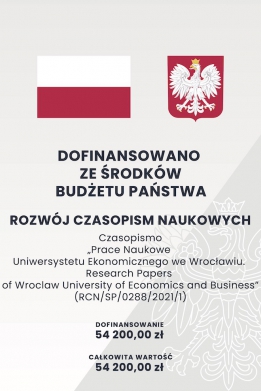The Role of Social Capital in Economic Activities in Poland in the Period of Global Crisis
Abstract
Social capital is one of the factors which influence economic activities. According to Bourdieu (1986) social capital is the aggregate of the actual or potential resources which are linked to the possession of a durable network of more or less institutionalized relationships of mutual acquaintance and recognition - or in other words, to membership of a group - which provides each of its members with the support of the collectively owned capital, a 'credential' which entitles them to credit, in the various senses of the word. This influences the ability among the market entities to cooperate with each other and to create their competitiveness on this market. In the present global crisis caused by the coronavirus pandemic (COVID-19), social capital is gaining new meaning. Bottom-up initiatives of local communities that support especially small entrepreneurs and provide temporary continuity of management processes are becoming the basis for cooperation. The emerging social capital can become a remedy combating the social fears of a lack of rational operations in management processes in times of uncertainty at individual and community level. On the basis of the above premise, the main purpose of this paper is to identify the general role of social capital in the management of entities in the period of uncertainty caused by the pandemic based on the example of Poland. The paper consists of theoretical background and empirical part using the methods of critical analysis of the literature and desk research.Downloads
Download data is not yet available.
Downloads
Published
2020-01-30
Issue
Section
Articles
License
Copyright (c) 2020 Aleksandra Grabowska-Powaga

This work is licensed under a Creative Commons Attribution-ShareAlike 4.0 International License.









